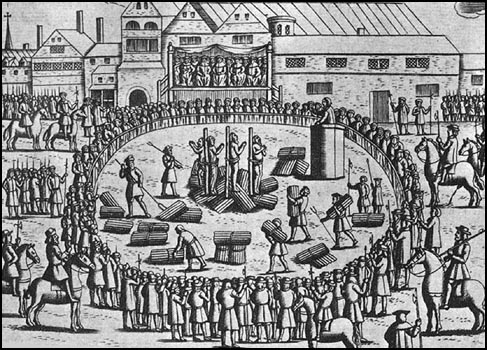
All well and good, but what the heck *are* they? Here is how the archmage Peter-of-the-Beard explained the Unreal to his apprentice.
Peter: ...and so the Threefold Formula of Invocation clearly implies this division. What does this mean in practical terms?
Apprentice: Ah... that the Creator, in the process of making the world, had to separate the Real from the Unreal first?
Peter: And why was that?
Apprentice: Erm... because to define what was Real, he had to define what was Unreal?
Peter: That is the major part of the truth, but also the shallowest part. He did not simply have to define the Unreal. He had to define it, create it, and systematically strip away its existance. They of the Unreal found themselves with Nowhere to make their home, Nothing to do, Nothing to make, Nothing to give them joy and Nothing in the way of skills or talents.
Apprentice: But doesn't the Second Dogma of the Eastern Kings state clearly that Nothing holds great and dangerous power?
Peter: Precisely so. With Nothing to work with, the Unreal had to make the most of it. This made them learn a fearsome efficiency - those unlucky enough to encounter them have described how they refuse even to allow themselves to stay idle for a single moment. It is this hellish drive which allowed them to compensate for their inadequacies - their non-existance, their impossibility - and begin the First War, launched from their fortress at the centre of what we today call Dream. It is whispered that there are Gods who still carry wounds inflicted by the Unreal's imaginary powers and insubstantial magics.
Apprentice: What were these powers like?
Peter: Well, you know how to cast illusions. They are not little-r real because they are not true, but they are still big-R Real since you produce them using rites and spells allowed within the constraints of Creation: if you produced an illusionary swordsman he would not be able to run anybody through in defiance of all reason, for we all know that illusions born of light and shadow cannot do such a thing. Were a God to deign to muddy his hands with our mortal magics, I dare say he could craft an illusion of a swordsman which seems so genuine that men would suffer heart attacks from fright when stabbed in the heart by it. But the powers of the Unreal can create an illusion of a swordsman which, like our illusions, is a mere assemblage of light and shadow - *but whose sword can slice your belly open*. This is the nature of the Unreal: every work of theirs both breaches the rules of nature and contradicts itself. That's what the Gods were facing: an army of contradiction.
Apprentice: But... but why are you telling me this? Surely the Gods imprisoned the Unreal in their fortress at the centre of Dream long ago?
Peter: That is precisely why I am telling you this. Dreams are... well, not a curse as such, but they are a gift of dubious virtue to mankind from the Unreal. In sleep our shadow-selves in Dream awake and if we do not watch where we step, if we are unwary when we venture forth from the green fields of pleasant slumber and the black pits of nightmare, we could find ourselves lured through temptation and deceit to the very fortress of the Unreal. They offer many things to those who find their fortress: they can help one break the very rules of the world, they can liberate one from the bonds of any Oath one has sworn, they can help one thwart Time and death. Oh, they can offer aid that not even the Gods dare offer, and give aid to those who all others have rejected.
But their price is always the same. The recipients of their aid accept the taint of the Unreal, become their proxies. Some remain in dream forever and join their war-bands. Others return to the world of waking and can cause great trouble before they are put down. They may not even remember making their pact with the Unreal: it depends how experienced a dreamwalker they are.
Apprentice: W... what does the fortress of the Unreal look like?
Peter: It is tall, hexagonal. Its walls are of black stone. Metal spikes grow out of it in curious positions - these spikes being inflicted on the fortress by the Gods, binding the... (mutters) No... By the Hunter's horse...
Apprentice: What? What is it?
Peter: You've seen it, haven't you?
Apprentice: No, no I swear, I....
Peter: Don't lie to me boy, I saw the flash of recognition...
Apprentice: I... I didn't mean to go! I didn't mean to swear the Oath of...
Peter: Say not its name, wretch.
And Peter-of-the-Beard did beat his apprentice to death with a poker from his fire, and did burn his body and said prayers to the God of Secrets, and none spoke of the apprentice again.
